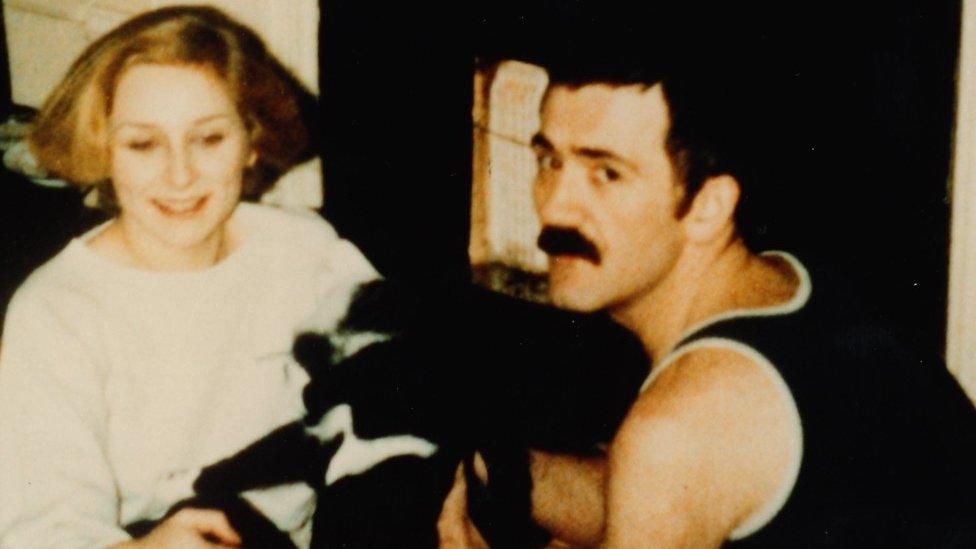'Having HIV has not stopped me living my life'
- Published
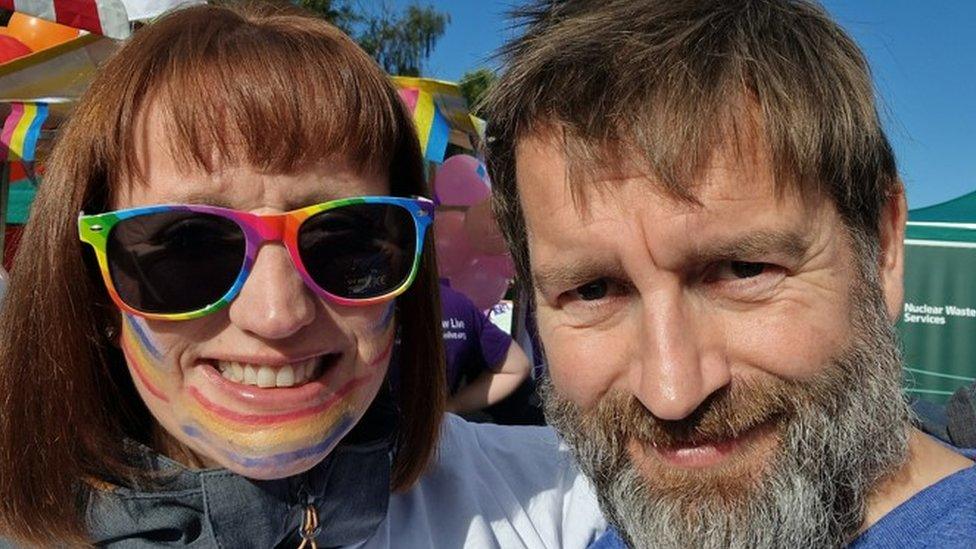
Julieanne Mitchell, who married her husband Rob last year, urged others who have persistent, mild symptoms to get tested for HIV
From receiving a smear test from a nurse in full PPE gear to being told to book a hospital appointment "when there was no-one around", Julieanne Mitchell is used to ignorance surrounding her HIV status.
But after living with it for almost 20 years, the 45-year-old wants to share her story of how she has gone on to live an almost-ordinary life.
Ten years ago Julieanne had an appointment with a surgeon to discuss the removal of a small cyst on her scalp.
As always, when she was asked what medication she was on she revealed her HIV status.
Even a decade on, she can still feel the humiliation when the surgeon wrote "HIV" in large black letters on her notes folder and told her to book the procedure in a slot at the end of the day.
The implication was clear to her. She was being told to be there when not many people would be around.
HIV cannot be transmitted through sweat, urine or saliva. The most common way of getting the virus is through having unprotected sex.
Julieanne was surprised a medical professional appeared not to know this.
'Was angry'
"Of course I didn't book the last appointment of the day," she says.
"As soon as I'd seen the doctor, I went to the reception and booked the first available appointment when there were lots of people around.
"I was angry - you always think medical professionals will know about HIV, but they don't if it's not their area of expertise."
"I complained, the surgeon apologised and I was told the whole department had received HIV training," recalls Julieanne of her experience at a hospital in the North East.
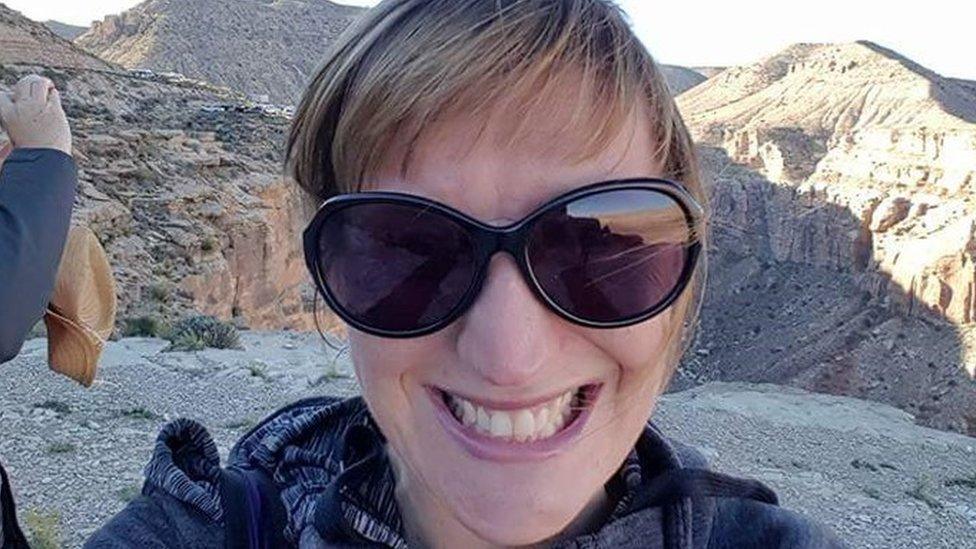
Julieanne says living with HIV had "enhanced" her life in many ways and made her adopt a healthy lifestyle
Julieanne contracted HIV when she was in her 20s, but her symptoms were so mild she put them down to having a cold or flu.
However, as her immune system was weakening she began to feel tired, had bleeding gums and developed abscesses on her tongue.
She also suffered weight and hair loss and had a persistent cough.
"It wasn't anything specific that made you think, 'that's HIV'," she says.
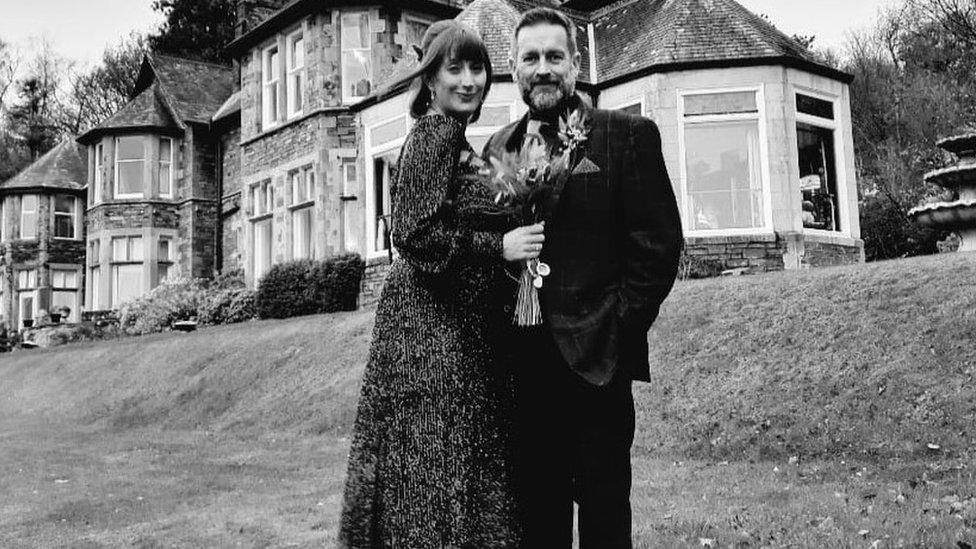
Julieanne and Rob Mitchell got married last year, two years after meeting online
When she went to the doctor with a swollen stomach, she said she was told it was probably irritable bowel syndrome (IBS).
"People can become infected with HIV and be well for up to 10 years, this is the scary thing," she says.
"It's not like you get infected, then all of a sudden you are ill.
"Not enough people think about getting sexual health screening."
She urged people to get tested, if like her, they have persistent, mild symptoms.
She said her doctor apologised to her when she was eventually diagnosed, saying she had not been tested because she was "not a gay man".

What is HIV?
HIV stands for Human Immunodeficiency Virus - the immunodeficiency is the weakening of the immune system by the virus.
If untreated it can lead to late-stage HIV or Aids, the name for a collection of illnesses caused by the virus.
Medication helping those with HIV to live long, healthy lives has been available for decades.
Modern medication reduces the viral load to undetectable levels, meaning someone can't pass on HIV and their health is protected.
Sources: Terrence Higgins Trust, external and NHS, external

Within six months of starting medication, she said all symptoms disappeared.
Her life could not be fuller now, says Julieanne - she runs every day and loves to travel.
She is a member of Eyes Open, a North East and Cumbria group of health workers raising awareness and tackling stigma.
The group promotes the U=U campaign - Undetectable=Untransmittable - which means those on effective treatment with an undetectable viral load, cannot pass on HIV.
It is holding a free art exhibition called Positive About HIV featuring local artists at Whitehaven's Rosehill Theatre at 18:00 GMT today.
Julieanne met paramedic Rob Mitchell, 50, from Bedford, on a dating app in August 2020.
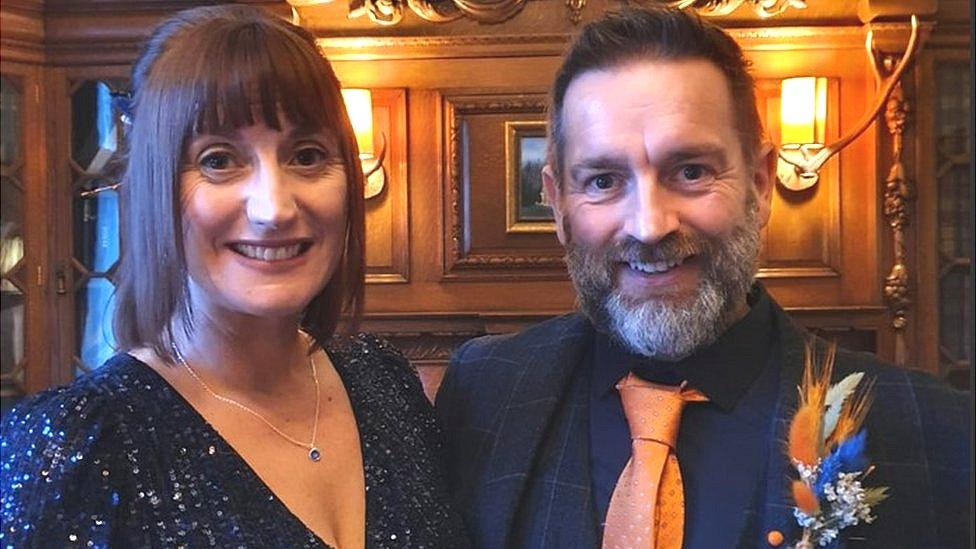
The couple on their wedding day in November 2022
"It was all online at first and I liked the way he looked and as I got to know him I realised he was just so loving and caring," says Julieanne.
After a few weeks, Julieanne said she felt confident to tell Rob about having HIV before she had even met him and believed he would be clued up about it because of his job. He wasn't.
"I said, 'it is what is, it's never going away' - and I told him what U=U means," she says.
"If you just want to be friends I totally understand."
Rob was unfazed, they met in person, and before long Rob moved to Whitehaven. They got married in November in the Lake District.
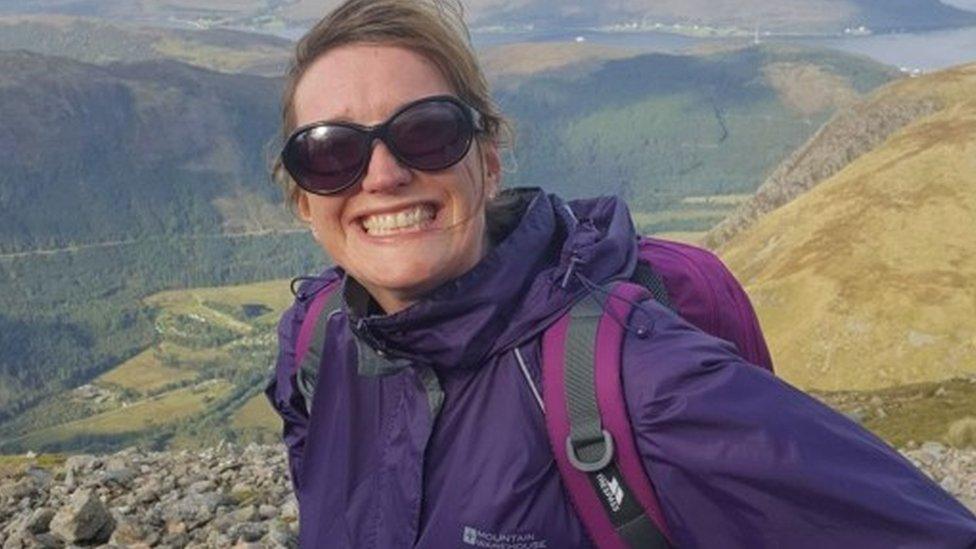
After starting medication for HIV, Julieanne said she was soon able to lead a full life including trekking on Ben Nevis
Julieanne says: "To be honest HIV is never even discussed.
"There's no need for Rob to get tested. I say to him to get tested if he wants peace of mind, but medically and scientifically I cannot transmit HIV.
"Obviously no-one wants to have HIV, but in many ways it's enhanced my life.
"I live more healthily, I eat well and I exercise."
According to Eyes Open about 106,890 people are living with HIV in the UK with an estimated one in 16 having the virus, but not knowing.
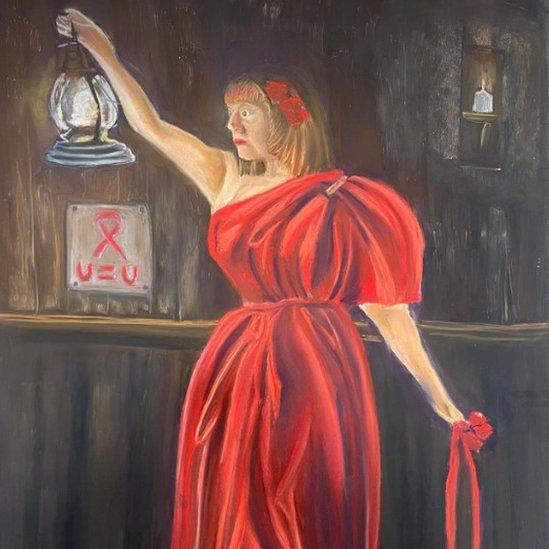
Artist Emma Hunt was inspired to paint Julieanne for the exhibition "shining a light" on living with HIV
Artist Emma Hunt said she was inspired to paint Julieanne for the exhibition carrying a lamp.
She said: "I wanted the piece to look like it could be hundreds of years old, showing outdated perceptions about HIV are lingering."
Guest speakers at the Positive About HIV art exhibition include West End actor Stephen Hart and artist Sir Henry Hate.

Follow BBC North East & Cumbria on Twitter, external, Facebook, external and Instagram, external. Send your story ideas to northeastandcumbria@bbc.co.uk, external.
- Published6 February 2023
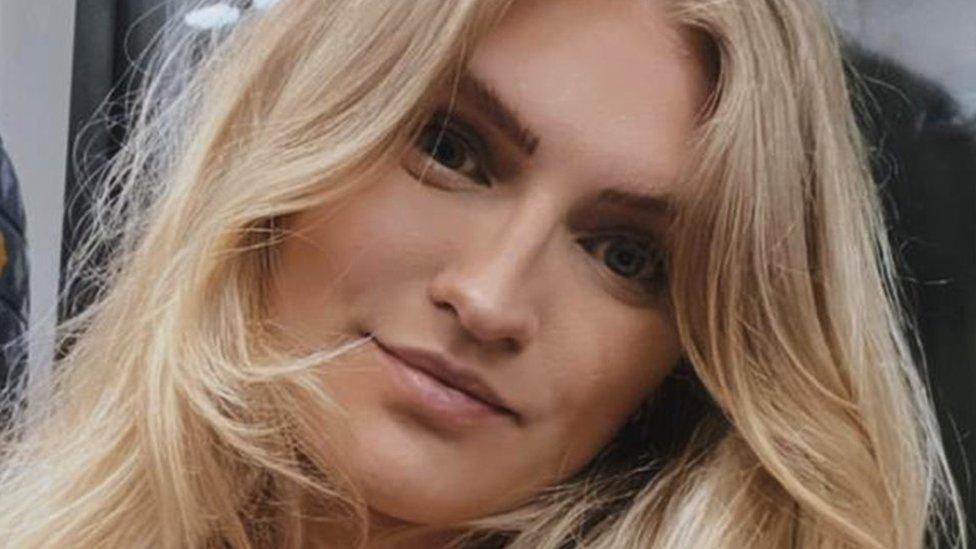
- Published19 May 2021

- Published9 November 2022
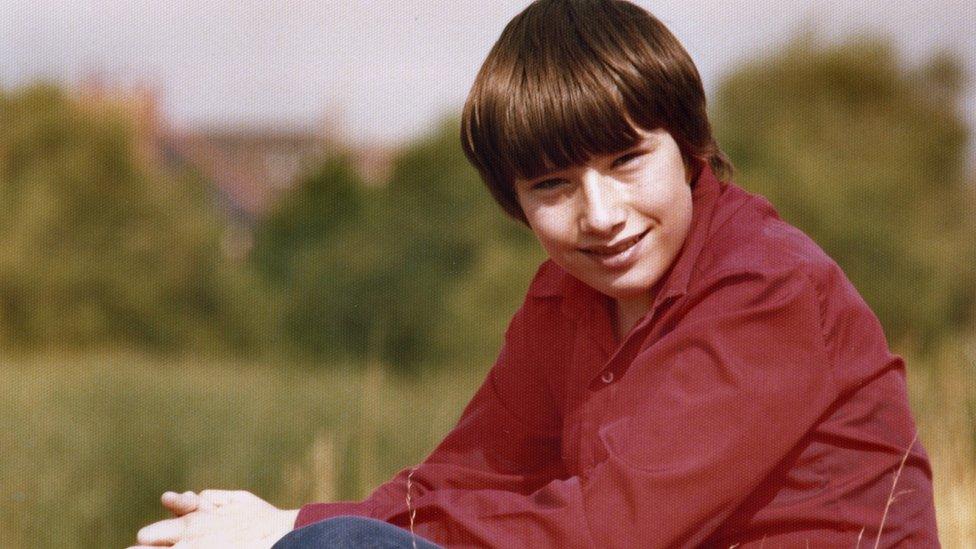
- Published4 July 2022
